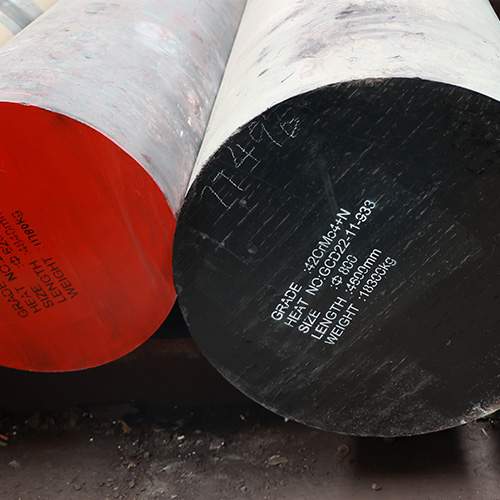Introduction

4140 steel strength is a critical factor in the selection and application of alloy steels across various industries. Known for its exceptional durability and versatility, 4140 steel is widely used in automotive, industrial, and structural applications. This comprehensive guide explores the intricacies of 4140 steel strength, detailing its properties, applications, and the influence of heat treatment on its performance.
What is 4140 Steel?
4140 steel is a chromium-molybdenum alloy steel classified under the AISI (American Iron and Steel Institute) system. It is renowned for its high 4140 steel strength, which is achieved through its unique chemical composition and heat treatment processes.
Chemical Composition of 4140 Steel
The chemical composition of 4140 steel directly influences its strength and performance. Key elements include:
- Carbon (C): 0.38 – 0.43%
- Chromium (Cr): 0.80 – 1.10%
- Molybdenum (Mo): 0.15 – 0.25%
- Manganese (Mn): 0.75 – 1.00%
- Silicon (Si): 0.20 – 0.35%
- Sulfur (S): ≤ 0.04%
- Phosphorus (P): ≤ 0.04%
These elements contribute to the high 4140 steel strength, providing a balance of hardness, toughness, and wear resistance.
Properties of 4140 Steel Strength
Understanding 4140 steel strength involves exploring various mechanical properties that define its performance under different conditions.
Tensile Strength
4140 steel strength is notably characterized by its tensile strength, which is a measure of the material’s ability to resist tension. The tensile strength of 4140 steel typically ranges around 655 MPa (95 ksi), making it suitable for high-stress applications.
Hardness
The hardness of 4140 steel is another indicator of its strength. In its normalized condition, 4140 steel can achieve a hardness of up to 28 HRC (Rockwell C scale). When heat-treated, its hardness can reach up to 54 HRC, enhancing its resistance to wear and abrasion.
Impact Toughness
4140 steel strength is also reflected in its impact toughness, which measures the steel’s ability to absorb energy during impact. 4140 steel offers good impact toughness, essential for applications subjected to dynamic forces and shock loading.
Fatigue Strength
The fatigue strength of 4140 steel indicates its ability to withstand cyclic loading. With its high 4140 steel strength, this alloy steel exhibits excellent fatigue resistance, making it ideal for components that experience repeated stress cycles.
Machinability
4140 steel strength also impacts its machinability. While generally machinable, 4140 steel is easier to process when in its annealed or normalized state. This property is beneficial for manufacturing components requiring precise dimensions and finishes.
Applications of 4140 Steel
The strength of 4140 steel makes it a versatile material used across various industries. Its properties are well-suited to demanding applications.
Automotive Components
In the automotive industry, 4140 steel is valued for its high 4140 steel strength, making it ideal for components like crankshafts, axles, and gears. Its durability ensures these parts can withstand the stresses and strains encountered in vehicle operations.
Industrial Machinery
4140 steel strength is crucial for industrial machinery, including shafts, gears, and bearings. The steel’s toughness and resistance to wear contribute to the reliability and longevity of heavy machinery components.
Tooling
Tooling applications benefit from 4140 steel strength due to its hardness and toughness. It is commonly used for manufacturing dies, molds, and cutting tools that require high performance and resistance to deformation.
Oil and Gas Industry
In the oil and gas sector, 4140 steel’s strength is leveraged for drilling equipment, valves, and pipelines. The steel’s ability to withstand harsh environments and high-stress conditions is essential for reliable performance in this demanding industry.
Structural Components
4140 steel strength also makes it suitable for structural applications. It is used in construction equipment and structural frames where high strength and durability are necessary to support heavy loads and withstand environmental stresses.
Heat Treatment and Its Effects on 4140 Steel Strength

Heat treatment is pivotal in optimizing the strength of 4140 steel. Different processes can alter its mechanical properties to meet specific requirements.
Annealing
Annealing involves heating 4140 steel to a temperature where it becomes more ductile and then cooling it slowly. This process improves machinability and reduces internal stresses, making it easier to work with while preserving 4140 steel strength.
Quenching
Quenching is the rapid cooling of 4140 steel after heating, typically in oil or water. This process increases the steel’s hardness significantly, but can also make it more brittle. The high 4140 steel strength achieved through quenching is beneficial for applications requiring hard, wear-resistant materials.
Tempering
Tempering follows quenching and involves reheating 4140 steel to a lower temperature before cooling it slowly. This process reduces brittleness and enhances toughness, balancing the high 4140 steel strength with improved impact resistance and durability.
Comparative Analysis of 4140 Steel Strength
To better understand how 4140 steel stacks up against other alloy steels, the following table compares its strength and properties with other common alloys:
| Steel Type | Tensile Strength (MPa) | Hardness (HRC) | Impact Toughness (J/cm²) | Fatigue Strength (MPa) |
|---|---|---|---|---|
| 4140 Steel | 655 | 28 – 54 | 50 – 60 | 300 – 400 |
| 4340 Steel | 745 | 35 – 55 | 55 – 65 | 350 – 450 |
| 1045 Steel | 570 | 20 – 30 | 40 – 50 | 250 – 350 |
| 4145 Steel | 690 | 30 – 50 | 55 – 65 | 320 – 420 |
This table highlights the 4140 steel strength relative to other alloy steels, showing its competitive performance in terms of tensile strength, hardness, impact toughness, and fatigue strength.
Conclusion
4140 steel strength plays a vital role in its application across various industries. Its impressive tensile strength, hardness, impact toughness, and fatigue resistance make it an excellent choice for demanding applications. By understanding the properties and effects of heat treatment on 4140 steel, you can make informed decisions about its use in automotive, industrial, tooling, oil and gas, and structural applications.
FAQ
Q:What is 4140 steel?
A:4140 steel is a chromium-molybdenum alloy steel known for its high strength and versatility. It is used in various industrial applications due to its excellent mechanical properties.
Q:What are the main properties of 4140 steel strength?
A:4140 steel strength is characterized by its high tensile strength (around 655 MPa), significant hardness (up to 54 HRC), good impact toughness, and excellent fatigue strength.
Q:How does heat treatment affect 4140 steel strength?
A:Heat treatment processes like annealing, quenching, and tempering significantly impact 4140 steel strength by altering its hardness, toughness, and machinability to meet specific application requirements.
Q:What are common applications of 4140 steel?
A:4140 steel is used in automotive components, industrial machinery, tooling, oil and gas equipment, and structural components due to its high strength and durability.
Q:How does 4140 steel compare to other alloy steels?
A:4140 steel offers a good balance of strength and toughness compared to other alloy steels. It is particularly noted for its high tensile strength and hardness, though other steels like 4340 may offer higher performance in specific areas.
Q:What are the benefits of using 4140 steel in tooling?
A:4140 steel’s strength, hardness, and toughness make it suitable for tooling applications such as dies, molds, and cutting tools, providing durability and resistance to wear and deformation.
Q:Can 4140 steel be machined easily?
A:4140 steel is relatively easy to machine, especially in its annealed or normalized state. Its machinability is enhanced by proper heat treatment, which improves performance during manufacturing.
